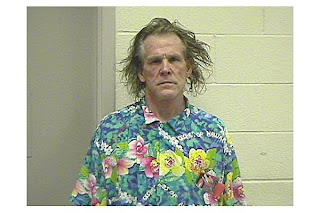There was a lot of press about Charlie Sheen a while ago.
People were worried about him. My wife thought he was bi-polar and soon to be dead, like Michael Jackson. He went on TV and did a famous interview in which he said he had tiger-blood in his veins. Several iconic catch-phrases came from that interview.
The porn, the drugs, the hookers, the porn, the failed relationships, and also, a whole lot of porn. The man’s mind became a refuse basket for a movie-of-the-week’s worth of drugs and hoochies. My heart goes into defibrilation just thinking about his lifestyle.
But I don’t think Charlie Sheen is crazy.
------------------------
Remember The Da Vinci Code? It was ostensibly a book. It had pages, and people in it that did things that constitute a plot. It sort of looked like a book.
But was it really? The action started two pages in and didn’t let up until the end. Not a singe moment for character or finesse, or anything else that writers do. At the end of every other chapter, the reader looks on as the main characters solve a puzzle. The outer jacket of the book is littered with codes, hidden messages, and cryptic images.
It’s not really a book but a device for making money. Dan Brown is by no means a literary genius, but he is a wizard at setting up little variables that run around the reader’s brain and set fire to his or her synapses. What he has written - one of the highest selling works of writing ever - is not a book but a constantly running program that uses our collective brain as an operating system. It’s a brilliant piece of work, but The Da Vinci Code is not a book.
The Da Vinci Code is not book any more than Charlie Sheen is a normal human being. He is biologically a normal human; he has a system that reacts in human fashion when he is engaging in those interminable marathons of hooker, porn, and cocaine. He looks and ages like a normal human.
But when he was in high school he hung around with his brother Emilio, and their friends Rob Lowe and Sean Penn. He was an extra on Apocalypse Now, in which his father was terribly drunk, in the set of which Francis Ford Coppola had long, frightening conversations with Marlon Brando as they created the movie character of Kurtz. That is not how a normal child grows up. Sheen has grown by and lived alongside vast wells of ambition and creative energy, and he’s soaked it up like radiation. When Charlie Sheen says he has Tiger-blood, he might not be far off.
But he’s the sort of person who made his personal life a mess, and yet took that personal life on tour to make a killing. He parlayed the massive ‘breakdown’ he had during his hiatus from Two and a Half Men into a colossal media circus. When the dust cleared, and the lawsuit he’d launched had settled, he was one hundred million dollars richer.
He can do anything now: launch his own show, write a guaranteed best-selling novel, develop his own bio-pic, or underwrite the next big thing in smartphones.
There is not a single example of a regular person profiting so handsomely off such horrendous personal misfortune. Anyone one else would be lucky to be only left homeless and alone, blindly walking the streets as a casualty and refugee of the American Dream. But not Charlie Sheen - his misfortune might have been made from solid gold.
He’s not a regular human being. I’m not sure what makes people who grew up alongside the great forces of culture different from other people. If I had to guess, I would think that he has an almost evolutionary ability to be the centre of a story, any story. He has the ability to appear to lose when all he was ever doing was entertaining and profiting massively off the attention.
So don’t ever feel bad for him, no matter what happens. He’ll just fail long enough to gain your sympathy, and then he’ll dust himself off and walk away with everyone’s money. He’s enacting a wonderful bit of live-streaming performance art and he’s great at it.













